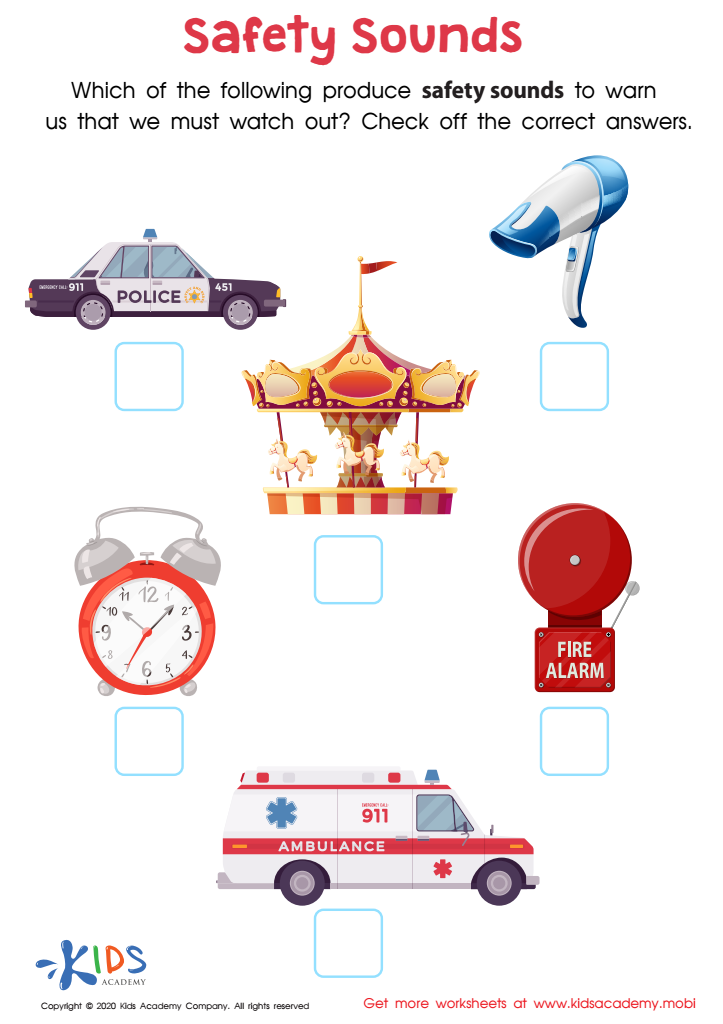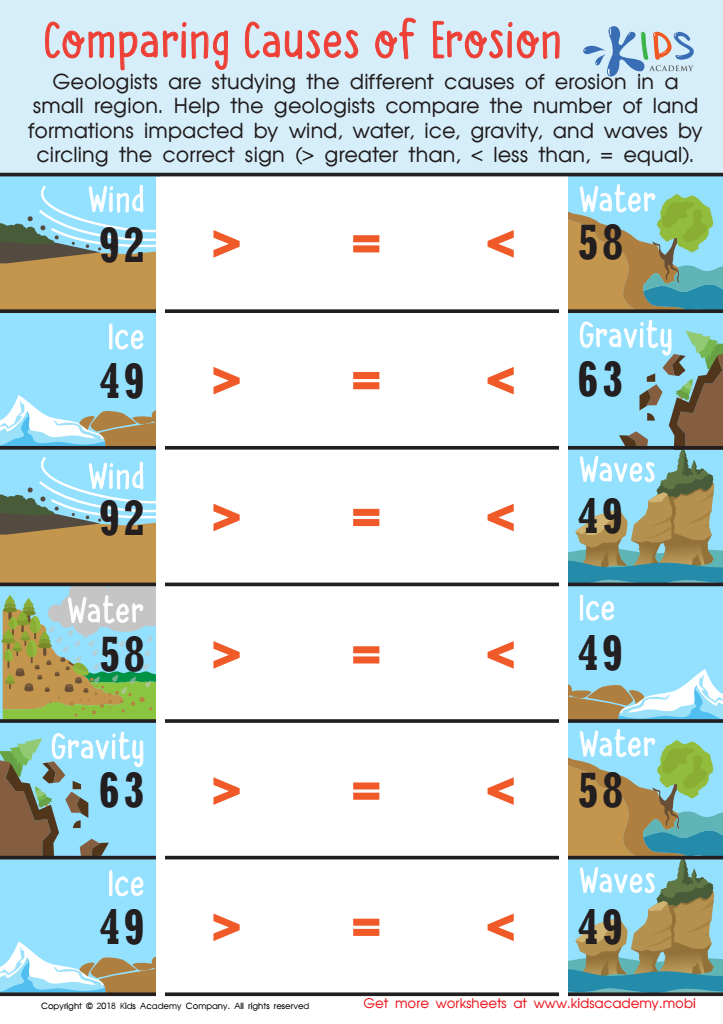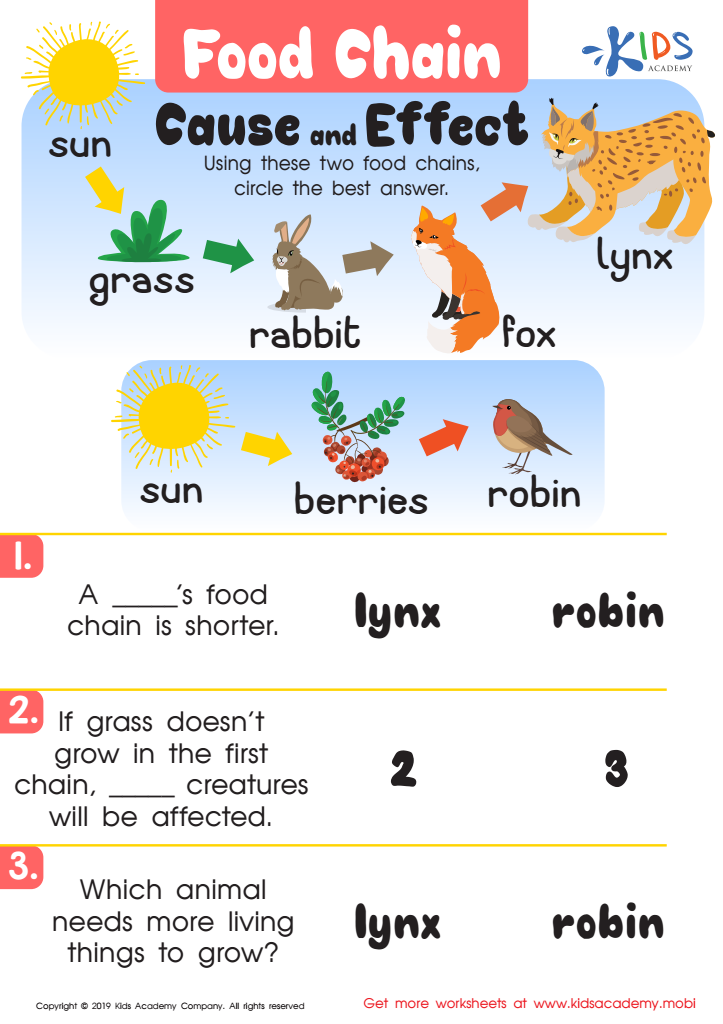Enhancing critical thinking Normal Science Worksheets for Ages 6-8
3 filtered results
-
From - To
Boost your child's analytical skills with our "Enhancing Critical Thinking Normal Science Worksheets," designed for ages 6-8. These engaging and educational worksheets help young learners delve into the fascinating world of science while promoting problem-solving and inquiry-based learning. Perfect for home or classroom use, they cover a variety of topics that stimulate curiosity and independent thinking. Aligned with educational standards, each worksheet fosters cognitive development and encourages students to ask questions, analyze information, and form conclusions. Make science both fun and informative, nurturing a lifelong love for learning and critical thinking in your child.


Safety Sounds Worksheet


Comparing Causes of Erosion Worksheet


Food Chain Cause Worksheet
Enhancing critical thinking in normal science for children aged 6-8 is essential for fostering a foundation of inquiry, creativity, and problem-solving. At this developmental stage, youngsters are naturally curious, eager to explore their environment and ask questions about how things work. By nurturing critical thinking skills, parents and teachers empower children to analyze information, make connections, and develop an understanding of scientific concepts in a meaningful way.
Critical thinking encourages children to move beyond mere memorization. It instills an approach to learning where they actively engage in the scientific process—forming hypotheses, conducting experiments, observing outcomes, and drawing conclusions. This hands-on engagement not only enhances their cognitive abilities but also prepares them for lifelong learning.
Moreover, critical thinking in science helps children build resilience and flexibility. They learn that it’s okay to make mistakes, as these are opportunities for learning and growth. This mindset is particularly important in a world that constantly changes and presents new challenges.
Beyond individual development, fostering critical thinking equips young minds with the tools to become informed and responsible citizens. They learn to approach problems thoughtfully, making decisions based on evidence rather than impulse. Ultimately, these skills not only benefit their academic performance but also contribute to their overall development and future success.

 Assign to My Students
Assign to My Students




















